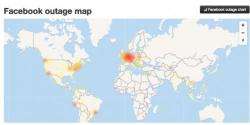iPhone X Makers Said To Struggle With Facial Recognition
Two weeks after the WSJ reported that Apple hit a production snag on the iPhone X, specifically as relates to critical components for the new iPhone's facial recognition technology, on Thursday the Nikkei reported that iPhone X manufacturers are still struggling to refine 3-D sensors, especially dot projectors in Apple premium handset’s TrueDepth, according to a tech executives.


